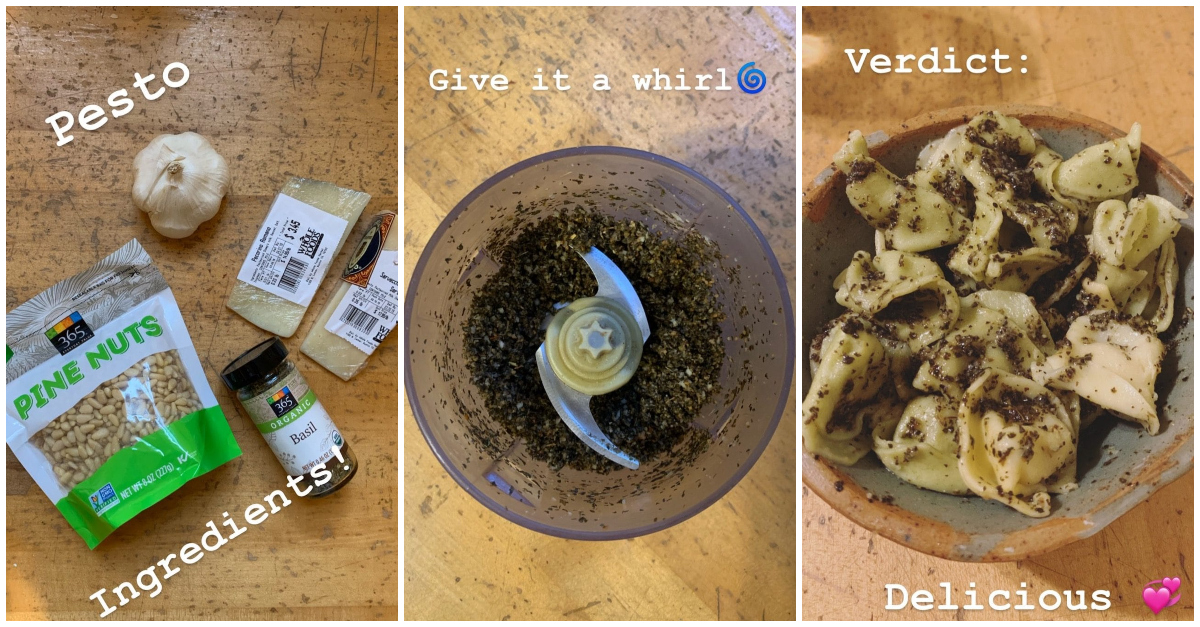
I’ve been on a serious pesto kick lately. It all started with a delicious chicken basil pesto pizza, which I’ve since reordered approximately 15 times. Since then, I’ve started to buy jars of pesto regularly from the store. In my humble opinion, pesto takes sandwiches and pasta to a whole new level.
Pesto consists of only five ingredients: basil, pine nuts, garlic, Parmesan cheese, and olive oil. So the more pesto I found myself consuming, the more I wondered: Couldn’t I just make this myself?
As always, the answer is yes. Yes, I can make it myself, and so can you!
It’s the perfect time to grow a fresh batch of basil, too, because spring and summer are fiiiinally on their way, and pesto is the spring-iest sauce there is. The recipe traditionally calls for fresh basil leaves, which is an herb that flourishes during the hotter parts of the year. If it’s not quite fresh basil season in your location yet, and you can’t find any at the grocery store, well, you’re in the exact same position that I was in when I made this pesto. As I discovered, you can substitute dried basil for a result that’s also delicious and will tide you over until spring arrives for real.
There are many variations of pesto that you can play around with, from spinach to walnut. Either way, the result is nutty, cheesy, and herbal, and it goes well with so many different dishes. Also, homemade pesto makes for a very impressive dinner party meal, or even as a wrapped gift.
Find the full ingredients list and recipe for an easy homemade pesto below.
Homemade Pesto Ingredients
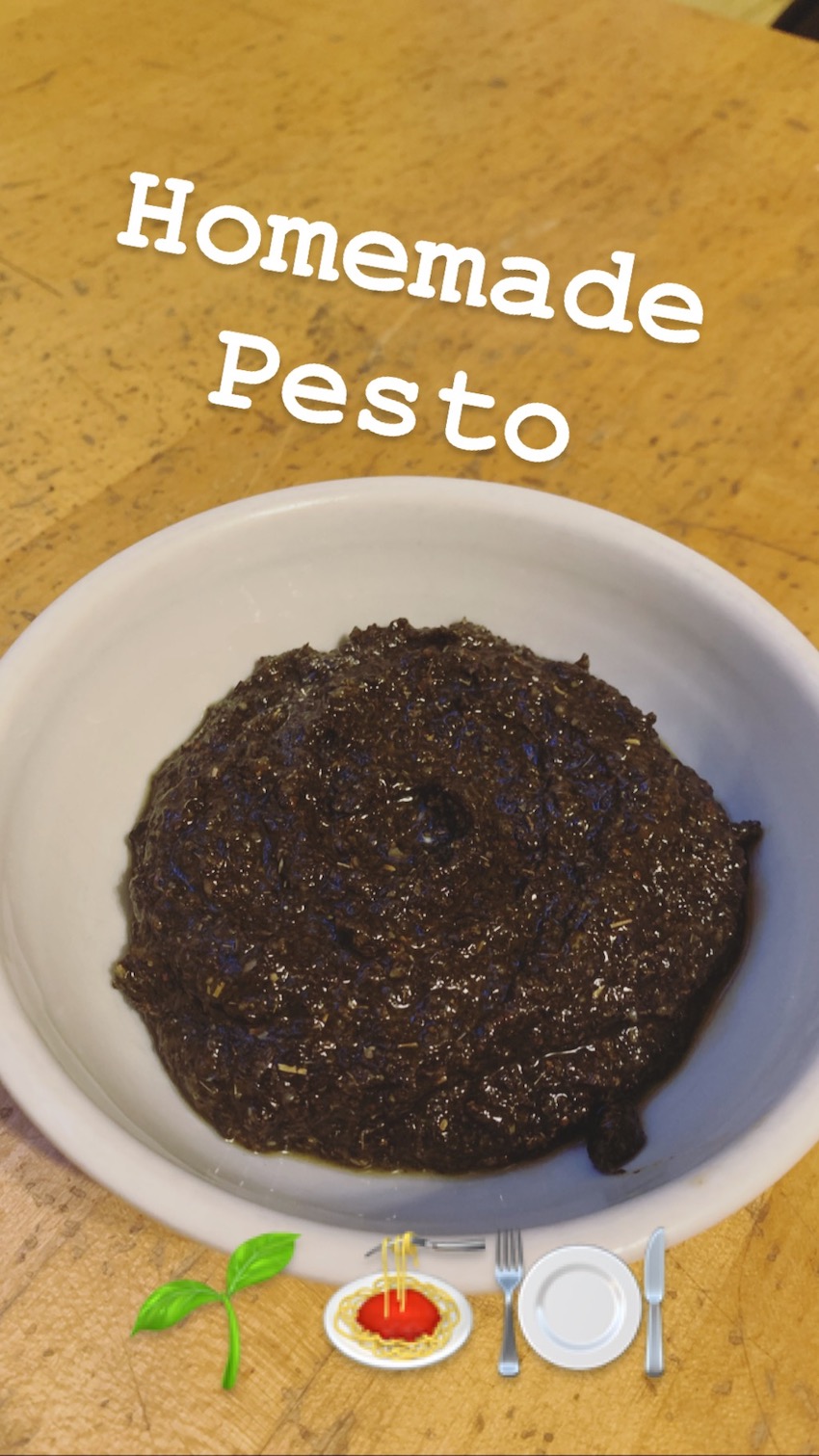
Traditional pesto requires only five ingredients, but as you’ll see below, there are several different variations. The five basic ingredients are:
- Fresh basil leaves
- Pine nuts
- Garlic
- Parmesan cheese
- Extra virgin olive oil
Almost every ingredient in this recipe is replaceable, so you can really make it work with what you have in your cabinet. If you don’t have access to fresh basil leaves, opt to use dried basil instead. Fresh basil is, of course, preferable, and it tastes, well, fresher. But don’t let a lack of fresh basil hold you back from making pesto! I tried three grocery stores, and nobody had fresh basil in stock, but I was determined to make a batch of pesto, darn it. You can also substitute kale or spinach for a healthier pesto, though it’ll have a markedly different taste without the basil.
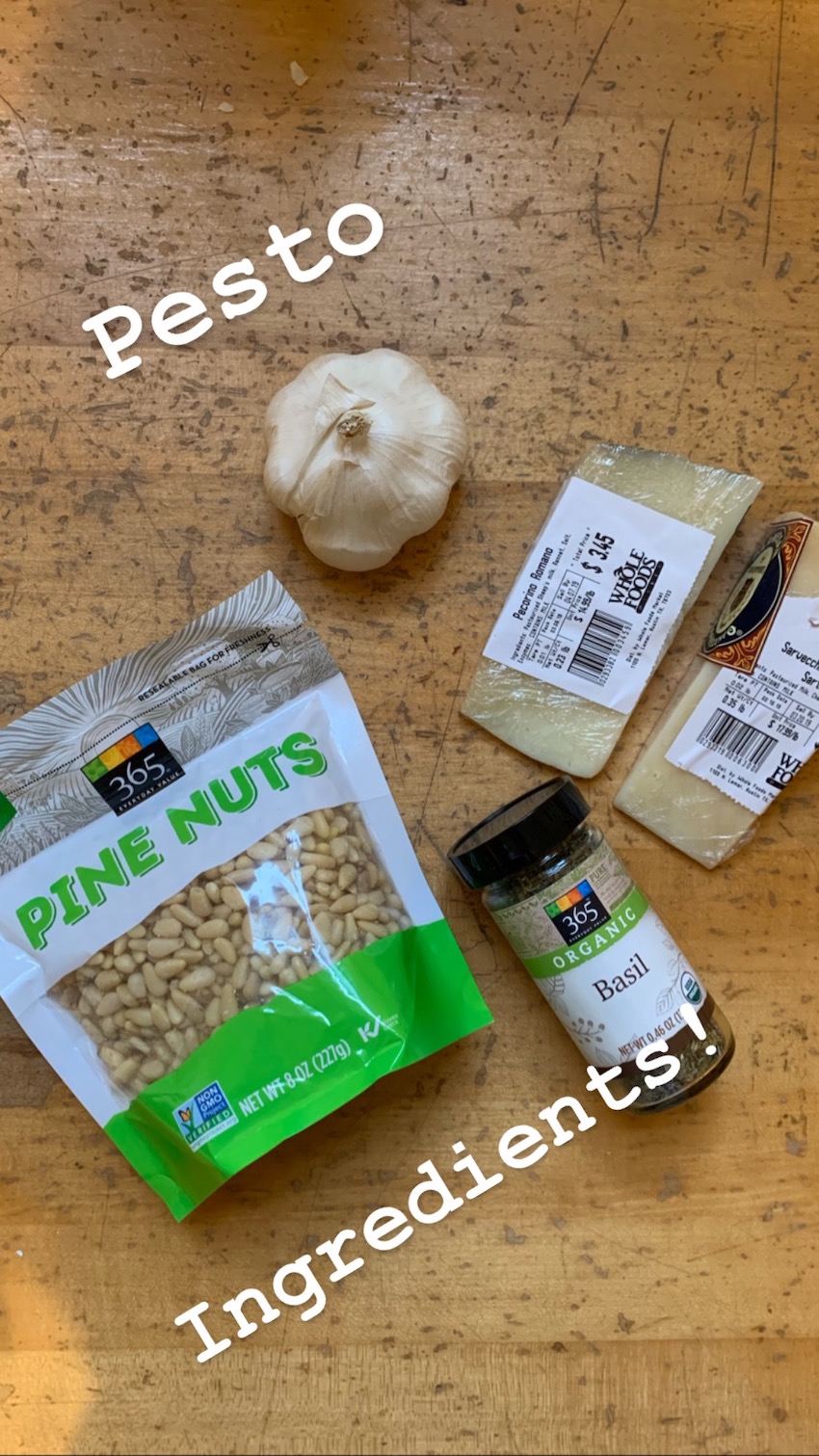
Pine nuts can also be replaced by a variety of other nuts that are much easier to find. Almonds and walnuts are two common choices.
Parmesan cheese is a key part of pesto because it adds a nutty and cheesy flavor. However, you can also use pecorino Romano, which is made from sheep’s milk and thus better suited to people who are lactose-intolerant. Or you can use a totally different type of cheese like cheddar or Asiago for a different taste. Some people opt to not add cheese at all and instead flavor the pesto with a bit of salt and lemon juice.
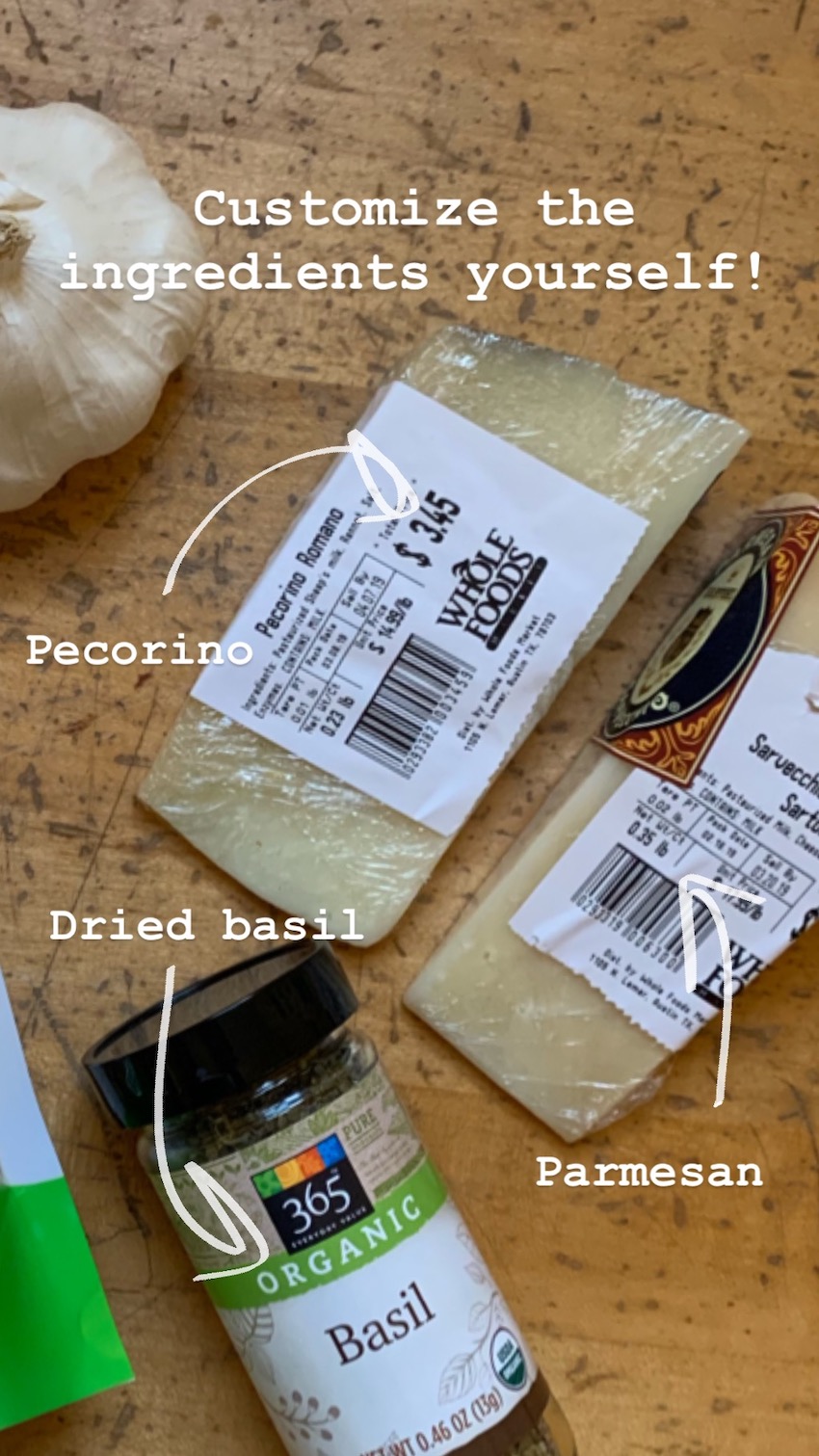
Even the olive oil can be substituted! You can use almond oil, avocado oil, or grapeseed oil if you have those on hand.
For my homemade pesto with dried basil, I used the following measurements:
- 1/2 cup dried basil leaves
- 1/4 cup pine nuts
- 2 large cloves garlic
- 1/4 cup shredded Parmesan
- 1/4 cup shredded pecorino
- Olive oil to taste
Homemade Pesto Process
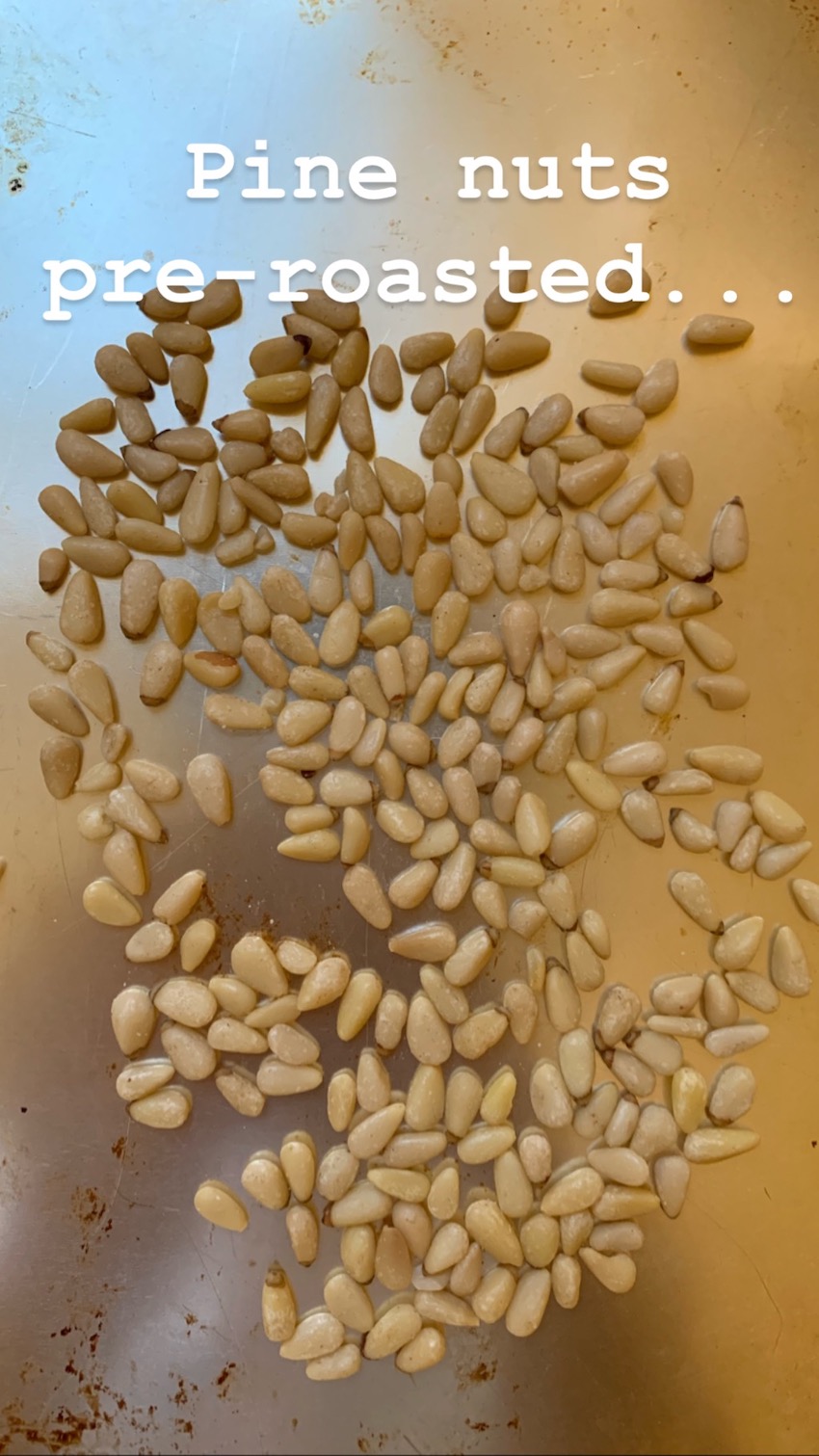
Once you’ve got your ingredients on hand, the process for making pesto remains mostly the same.
First, toast the nuts in the oven for a bit until they’re nice and brown. I toasted the pine nuts at 350 degrees F for 8 minutes.
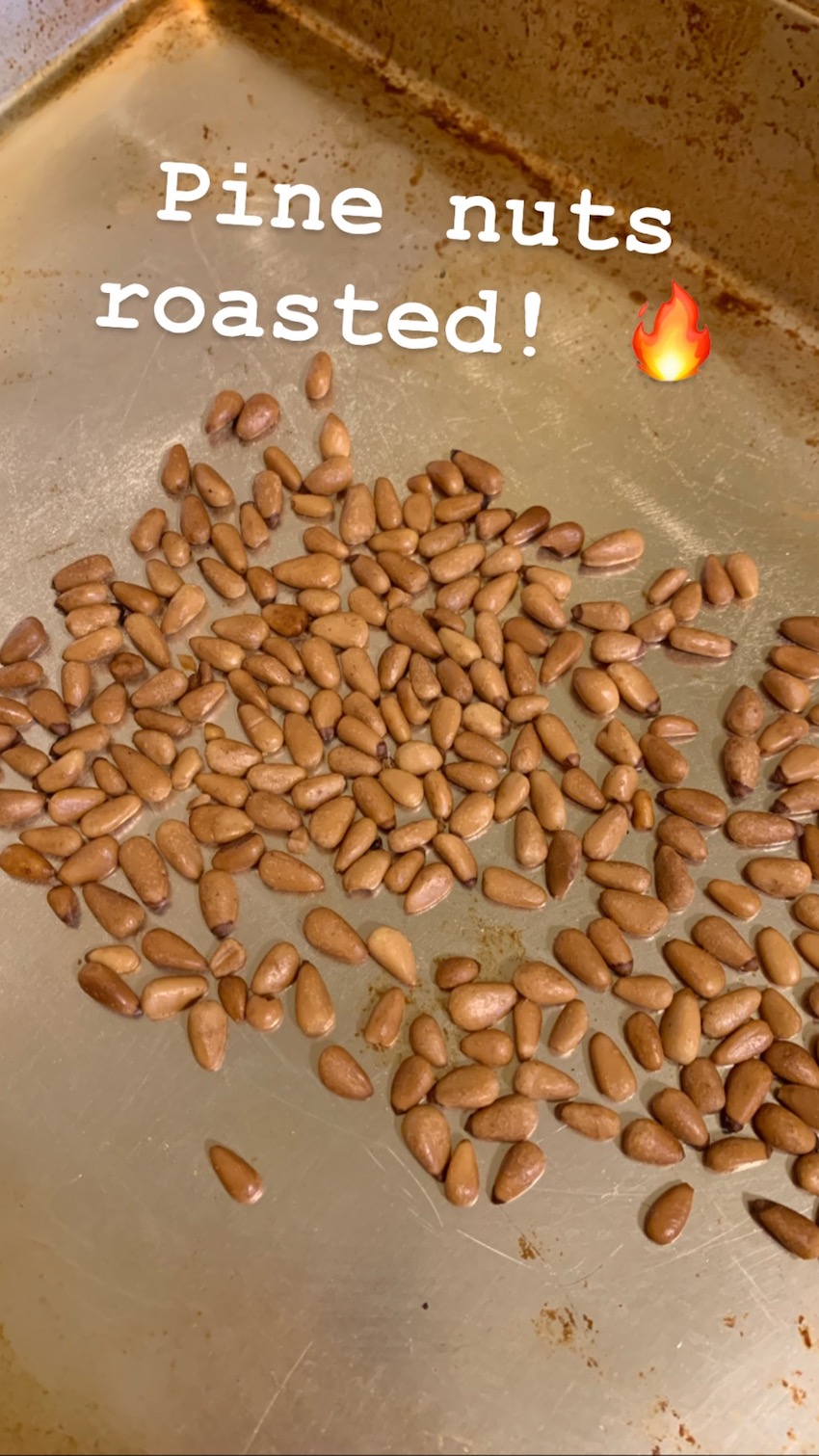
While the nuts are in the oven, you can prepare the rest of the ingredients. I shredded 1/4 cup of Parmesan and 1/4 cup of pecorino for a total of 1/2 cup of cheese.
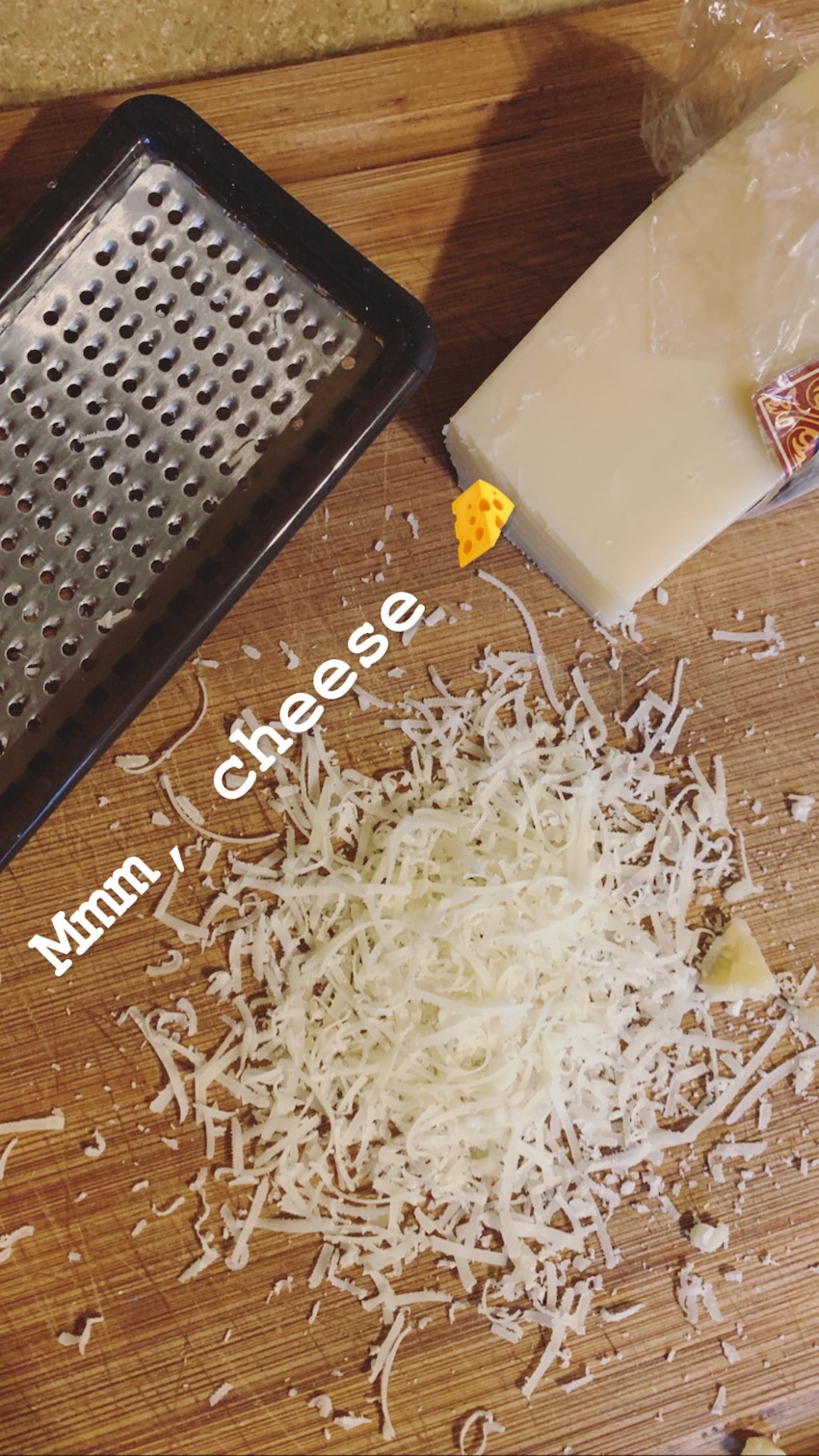
Then remove the skin from the garlic and roughly crush each clove with a knife. I used two cloves because they were very large; if your cloves are regular-sized, use three.
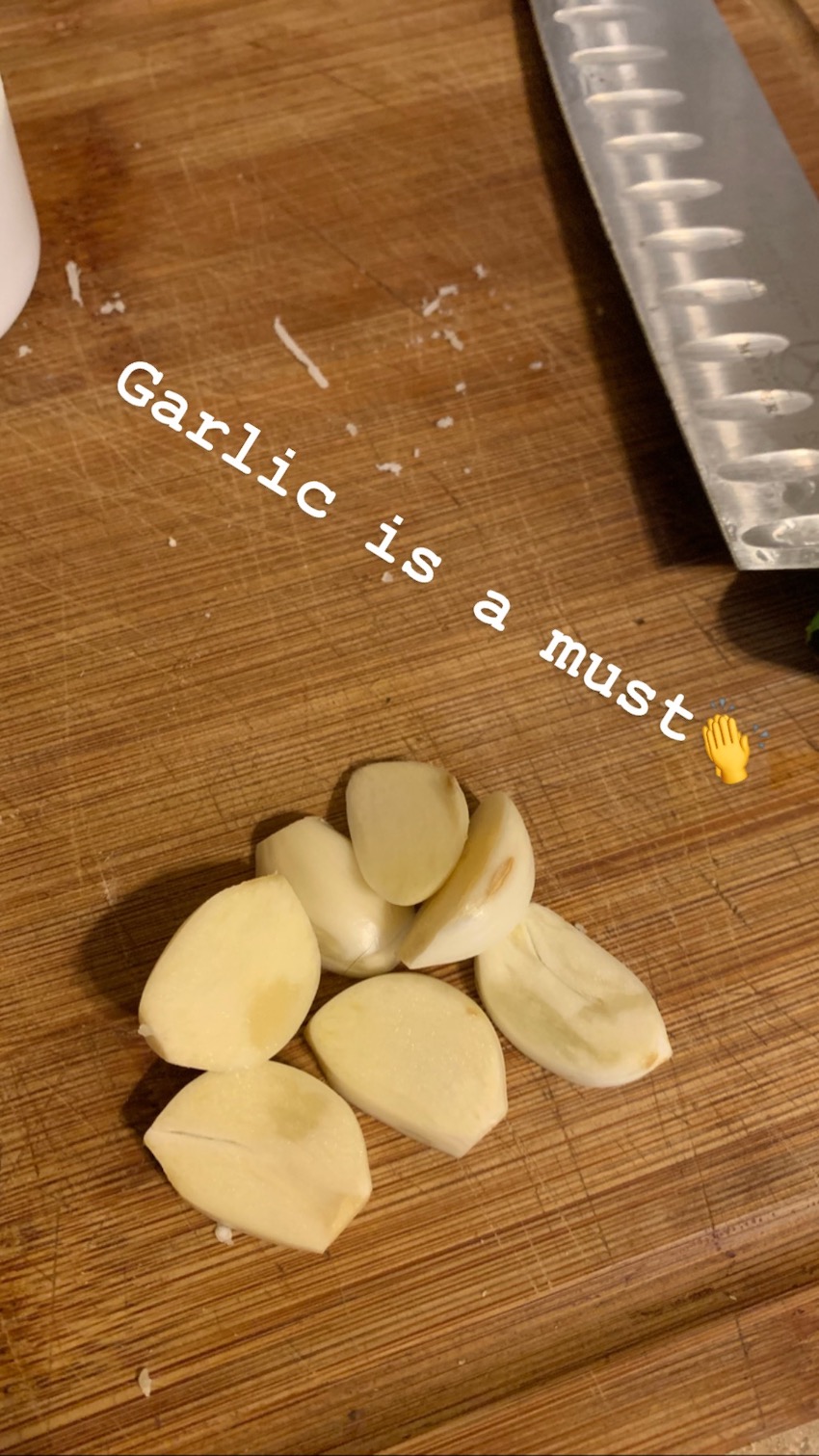
Lastly, I measured out 1/2 cup of dried basil leaves. If you’re using fresh basil leaves, just rinse them and remove the stems, and they’ll be good to go.
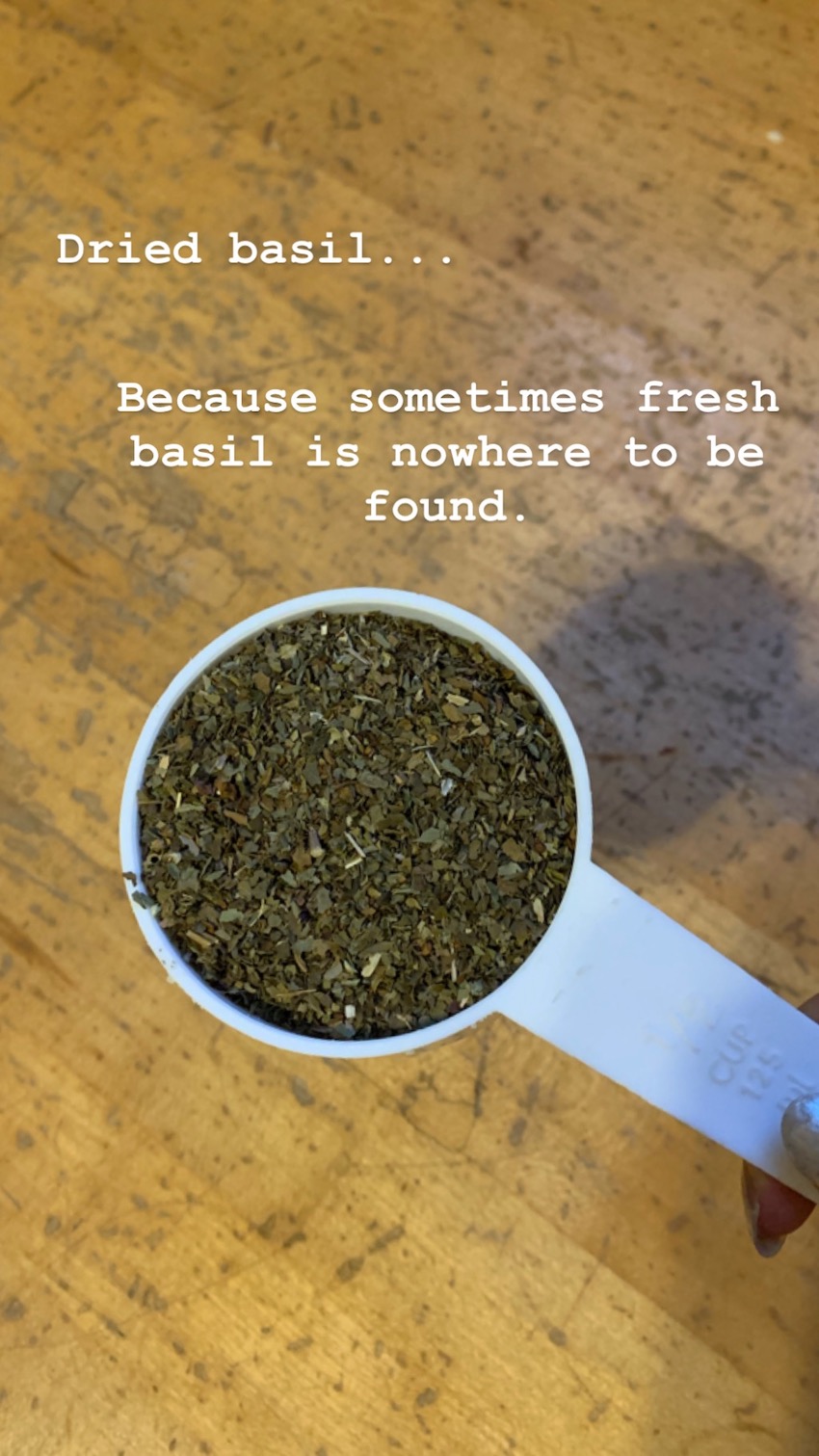
Once the nuts are done toasting, add all of the ingredients to a food processor.
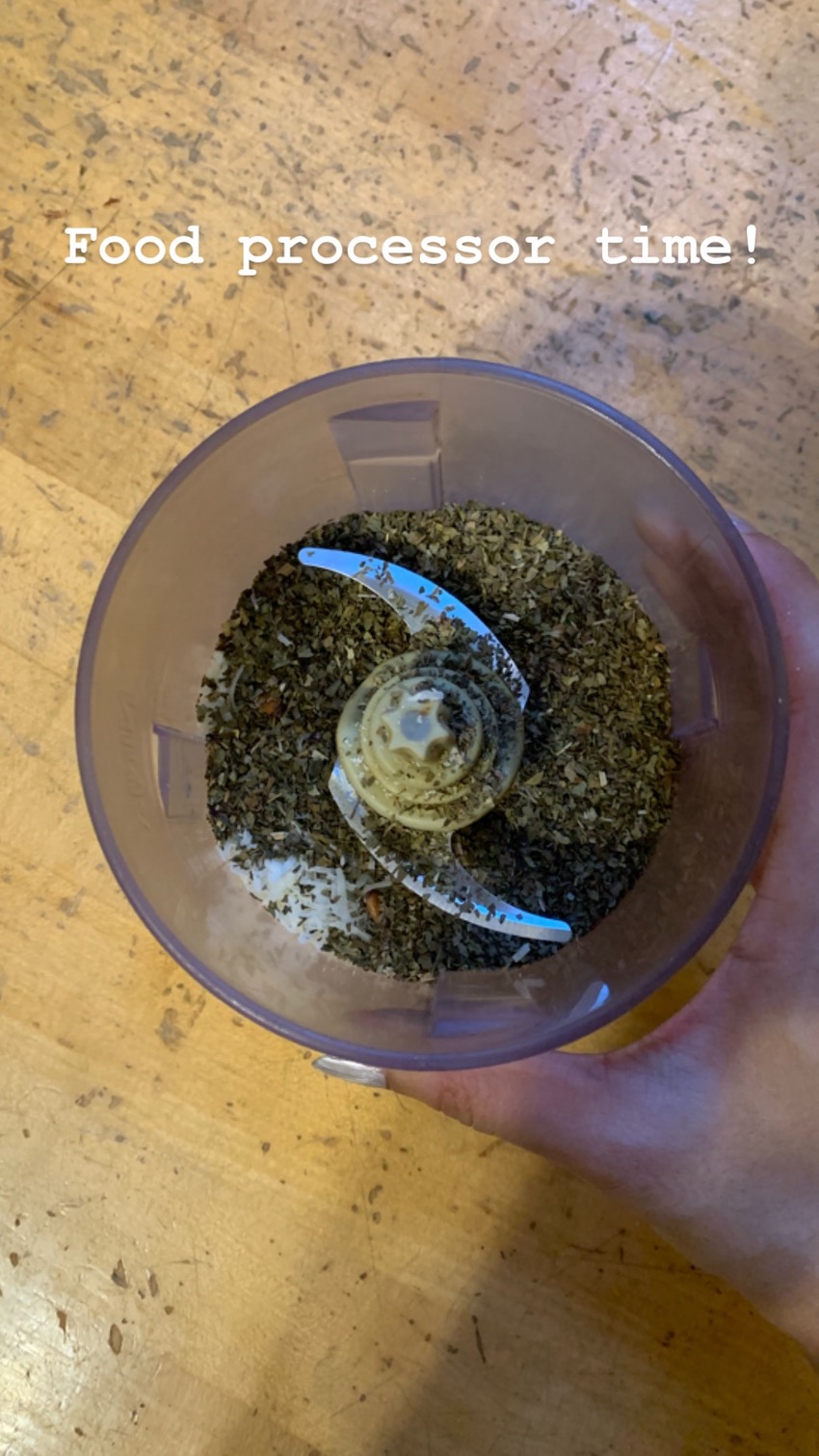
Pulse until everything has turned into a paste.
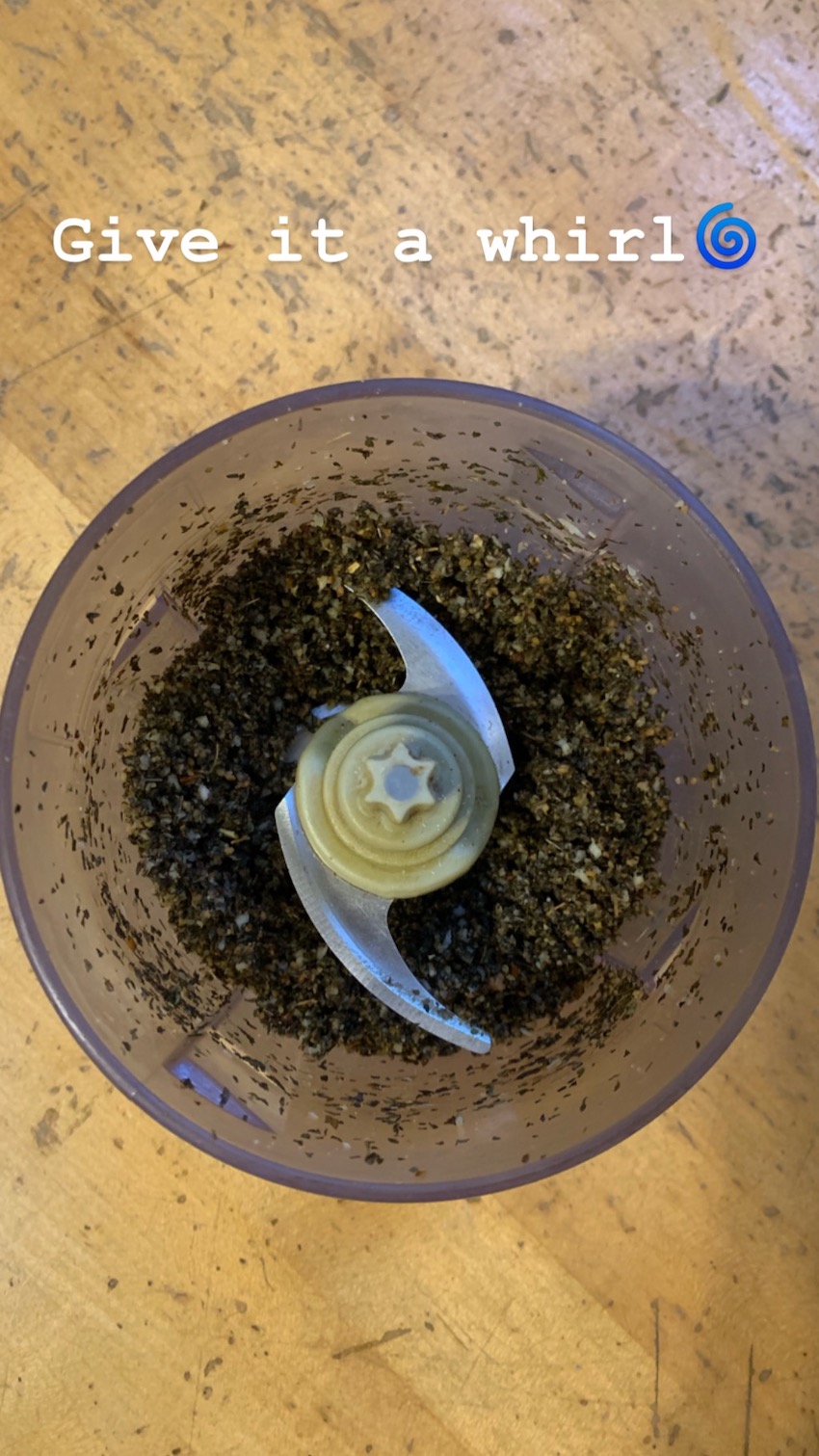
Drizzle olive oil into the food processor and continue to blend until the mixture is smooth.
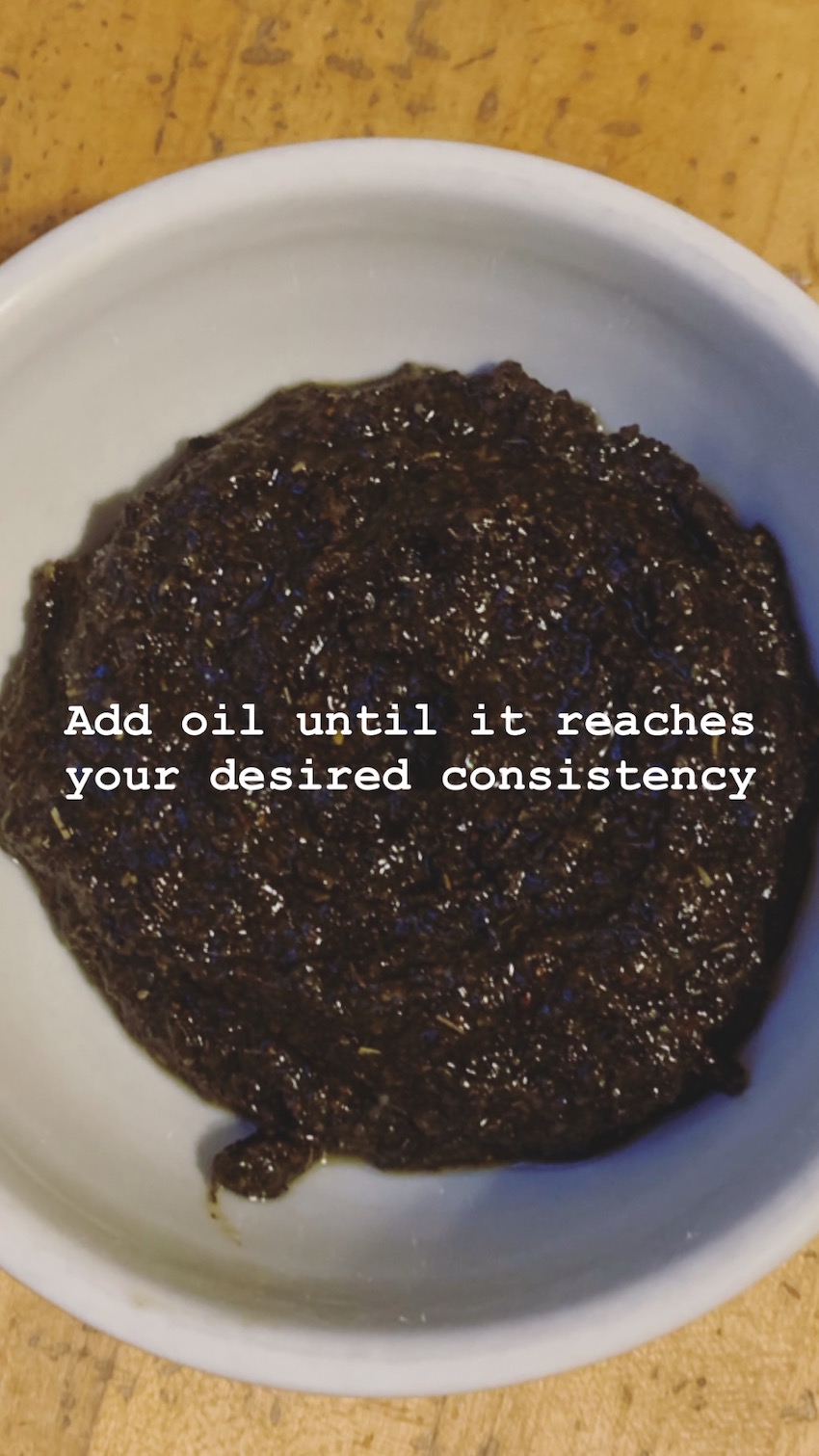
Some people like their pesto very thick, while others like it to be more liquidy. It’s up to you! That’s the whole point of making your own pesto instead of buying it! Make it the consistency that you like. Taste it and add whatever you want. Go wild.
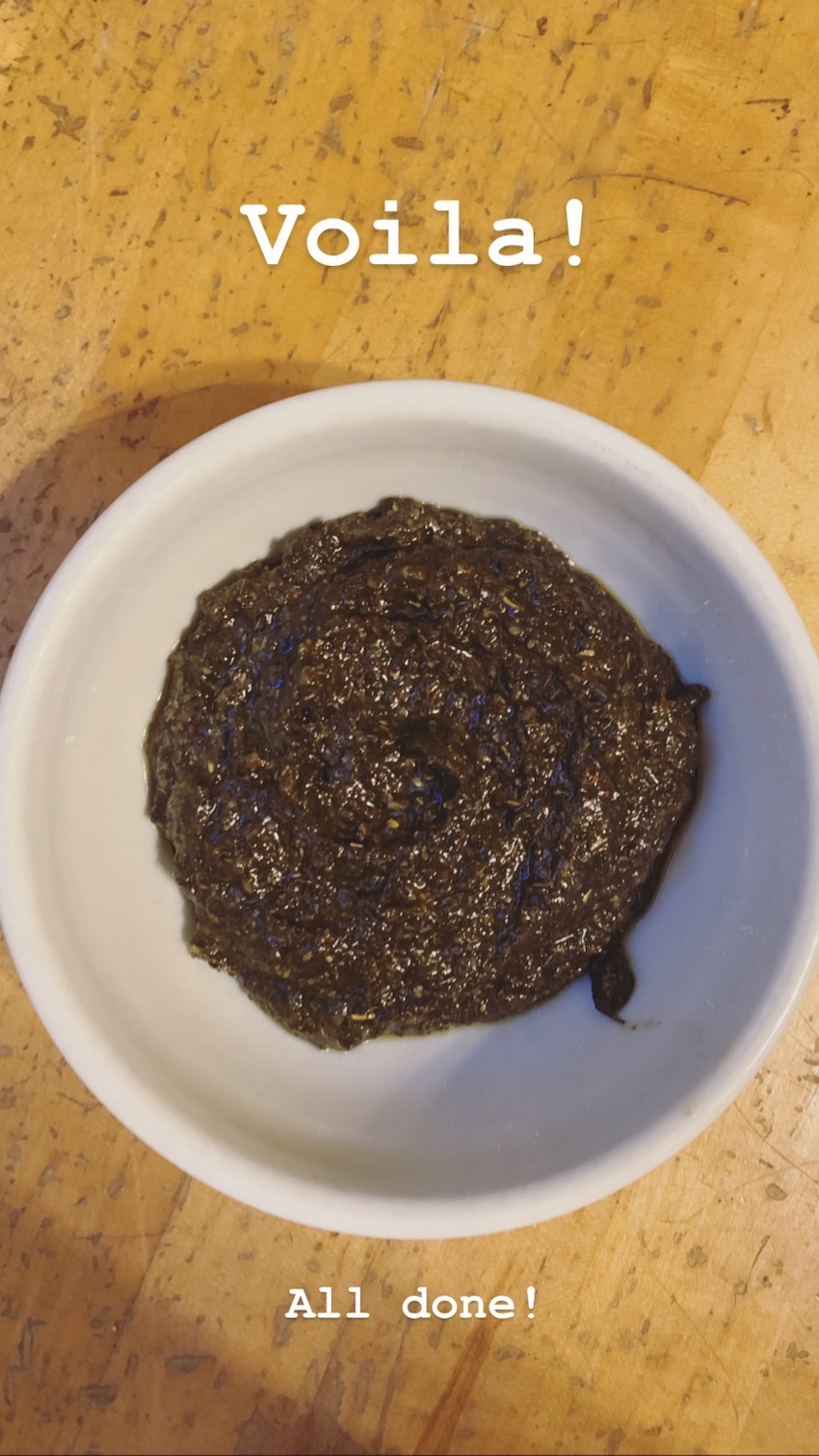
I immediately made pasta after my pesto was finished, because hello! It’s the perfect vehicle for pesto taste-testing.
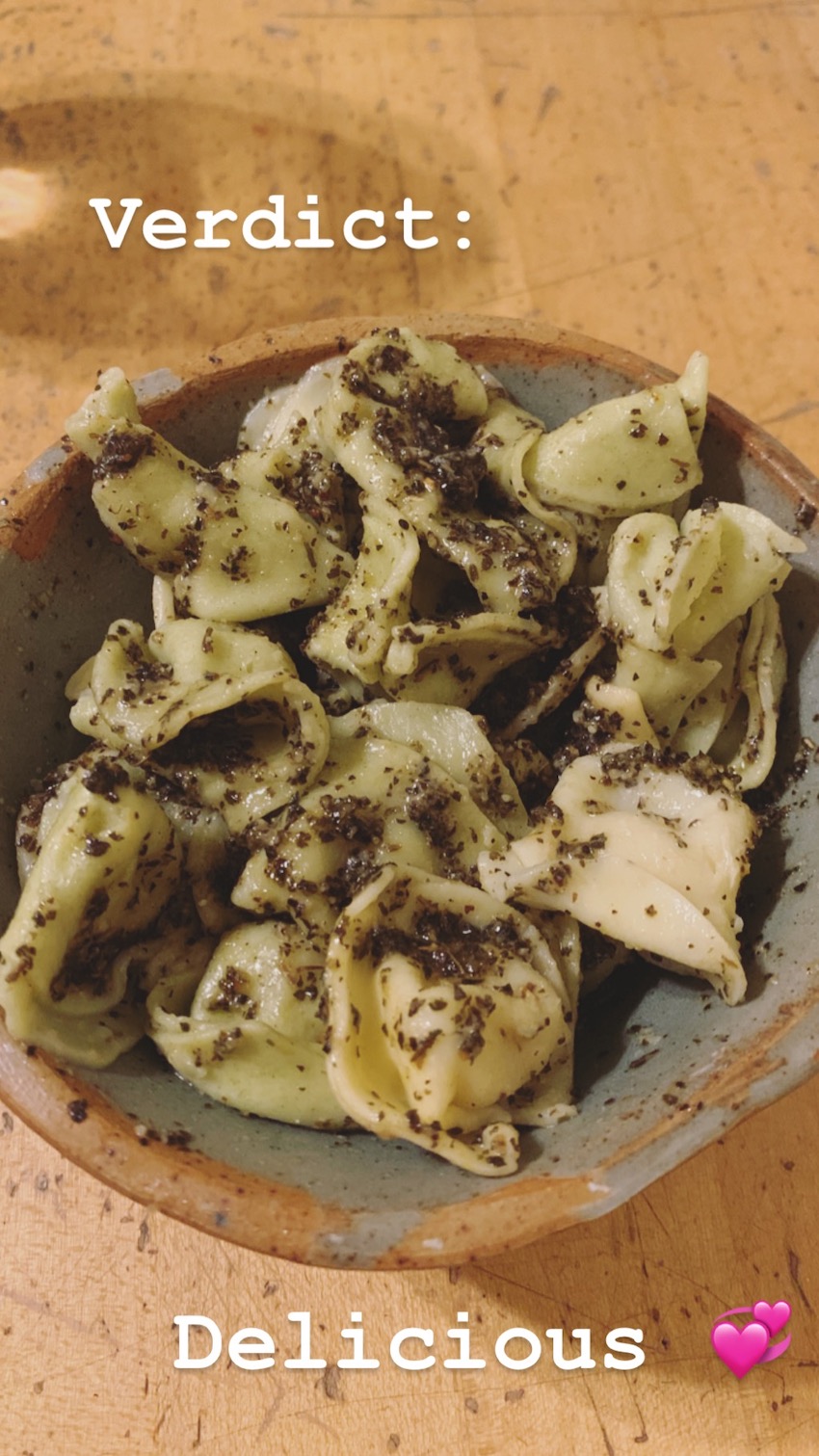
My dreams came true: It was yummy and perfectly pesto-y, much like the pesto I buy from the grocery store!

Now let the spring weather begin.




